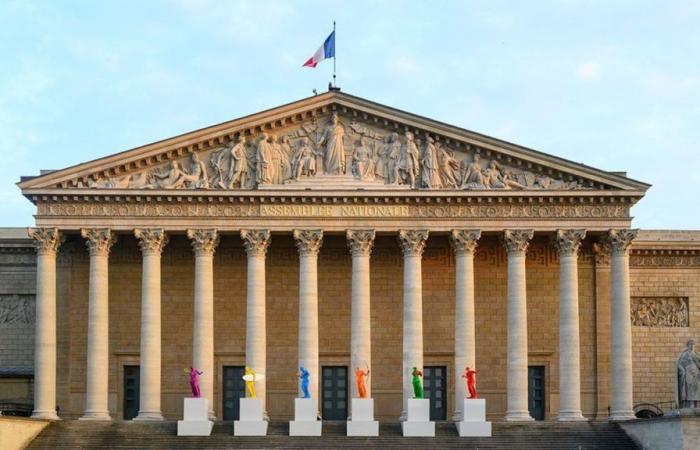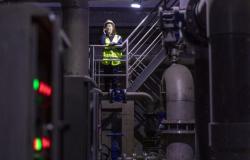The starting signal for a decisive vote. Starting at 8 a.m. this Sunday, June 30, voters in metropolitan France can vote in the early legislative elections. In Overseas France, the French were called to the polls the day before, Saturday, June 29. Polling stations will close at 6 p.m. In some large cities, they will remain open until 8 p.m. In total, 4,010 candidates ran in the first round of these early elections in the hope of winning one of the 577 seats in the Palais-Bourbon: there were 6,290 in the previous legislative elections in 2022.
This vote comes three weeks after Emmanuel Macron’s surprise decision to dissolve the National Assembly, following the setback suffered by the presidential camp in the European elections, won by the National Rally. This is the sixth dissolution since the creation of the Fifthe Republic: the last one dates back to 1997, almost 30 years ago.
Potential cohabitation
A failed bet at the time for President Jacques Chirac, who had failed to renew his majority – it remains to be seen whether it will also be a failure for Emmanuel Macron. A defeat of the presidential camp against the National Rally or the alliance of the left, the New Popular Front, would lead to a period of cohabitation, the fourth in the history of the Fifth Republic.
But there is no guarantee that any party will succeed in obtaining an absolute majority. And without the strength of the majority power and in the absence of a possible coalition between different groups in the Assembly, a period of political instability could begin. A government with only a relative majority could be threatened with being overthrown and face blockages.
Positions taken
This express campaign for the first round was marked by numerous positions taken, notably from athletes, like the captain of the French football team, Kylian Mbappé, who spoke out “against the extremes”. Another rare voice: that of the economic world, which expressed its fears regarding the outcome of the election. The French Association of Private Enterprises (Afep), for example, warned of the “major risk” of a “sustainable decline” in the French and European economy after the elections. The association which brings together 117 of the largest French companies, such as Airbus, TotalEnergies and Danone, also called on political parties for “budgetary responsibility”.
The Medef, for its part, set the day after the dissolution of the Assembly its conditions “to ensure an economic future in which businesses can continue to develop and create jobs”. With other employers’ organizations, the CPME and the U2P, it also organized a major oral hearing where the various party leaders were heard in order to present their economic programs and answer questions from business leaders, for example on pensions.
Increase in participation expected
Compared to previous elections, turnout for this first round of legislative elections should be up, according to pollsters. Ifop is counting on a turnout of 64%, whereas two years ago, only 47.5% of registered voters went to the polls. This growing mobilization is already reflected in the vote of French citizens abroad: 410,000 of them voted on the online platform, open from Tuesday to Thursday. According to the Ministry of the Interior, this is a record. The number of proxies has also exploded and exceeded the 2 million mark.
This increase in participation should lead to an increase in triangulars, when three parties having obtained at least 12.5% of the votes remain in the second round. If this was a rather rare situation during previous elections – eight constituencies were concerned in 2022 – the polling institutes expect that the triangulars will multiply for these elections. The sometimes thorny question of voting instructions for the second round will then arise for the different parties.
Polarization around three blocks
During the campaign, the political landscape also polarized around three blocs, the National Rally, the New Popular Front, and the presidential majority, while Les Républicains were plagued by internal dissensions.
In the latest LegiTrack barometer from OpinionWay-Vae Solis for “Les Echos” and Radio Classique, the far-right party is credited with 37% of the votes in the first round, compared to 28% of voting intentions for the NFP and 20 % for the majority. In 2022, the presidential coalition came in first with 25.75% of the votes, narrowly ahead of the left-wing alliance, Nupes (25.66%). The RN had, for its part, collected 18.68%.
If the European elections were marked by a lack of interest among the French, the surprise vote of June 30 and July 7 seems to interest them more, as evidenced by the audiences of the televised debates opposing the leaders of the three main camps. The two debates organized on TF1 and France 2 brought together 6 million and 3.2 million viewers respectively. More generally, the French news media seem to benefit from a “dissolution effect” with audiences, sales and visits increasing – a sign of the French appetite for information during this period.






